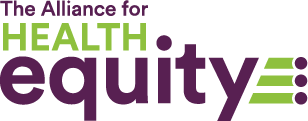3 Tips for a Healthier Holiday Season and New Year

Over the past 20+ years, The Alliance for Health Equity has strived to advance a more equitable, resilient, and healthy community for all residents of the Greater Coatesville area. Through grantmaking, they have pursued their mission by providing scholarships, building partnerships, and being a catalyst to spark new initiatives where they are needed the most.
The ultimate goal is to improve the health, social, emotional, and economic conditions among children, teens, and families in the Coatesville Area School District. As everyone celebrates the holiday season and the approaching New Year, here are tips to help make health and safety a priority for you and your loved ones.
1. Head Off Holiday Stress
December and January are a time of joy— and stress—for many. If you are feeling overwhelmed by the wintertime hustle and bustle, Johns Hopkins Medicine recommends “4 Mindful Tips to De-Stress this Holiday Season,” including accepting imperfection, responding with kindness, rethinking your resolutions, and not losing sight of what really counts. To learn more, click here. According to The Mayo Clinic, “Stress that’s not dealt with can lead to many health problems, such as high blood pressure, heart disease, stroke, obesity and diabetes.”
2. Eat Healthy
The Centers for Disease Control and Prevention (CDC) notes that, “You may not be able to control what food you’re served, and you’re going to see other people eating tempting treats. Meet the challenges armed with a plan.” The CDC’s suggestions include eating slowly and close to your usual times to keep your blood sugar steady, starting with vegetables to take the edge off, savoring small servings of your favorite holiday foods (because “no food is on the naughty list during the holidays,” per the CDC), avoiding or limiting alcohol, and cutting back on refined carbs during the meal if you plan to eat dessert.
3. Prevent the Spread of Germs
Remember that the holiday season is also flu season, RSV cases are on the rise throughout the US, and COVID is still circulating as more people congregate indoors during the colder months. Wash your hands often to prevent the spread of germs, get any recommended vaccinations, and consider wearing a mask in crowds if you are or live with someone who is immunocompromised or dealing with other risk factors. To prevent illness when you are preparing food, the CDC advises to “Wash hands and surfaces often, avoid cross-contamination, cook foods to proper temperatures, and refrigerate foods promptly.”
During the holiday season, it’s also important to get enough sleep, stay physically active, keep a watchful eye on children (keep dangerous toys, food and drinks, household items, and other objects out of reach and protect them from potential accidents), wear seatbelts when traveling, and bundle up to stay warm. You should also practice fire safety. Per the CDC, “Most residential fires occur during the winter months, so don’t leave fireplaces, space heaters, food cooking on stoves, or candles unattended. Have an emergency plan and practice regularly.”
Learn more at Alliance for Health Equity.
Connect With Your Community
Subscribe to stay informed!
"*" indicates required fields






![95000-1023_ACJ_BannerAd[1]](https://vista.today/wp-content/uploads/2023/03/95000-1023_ACJ_BannerAd1.jpg)










































